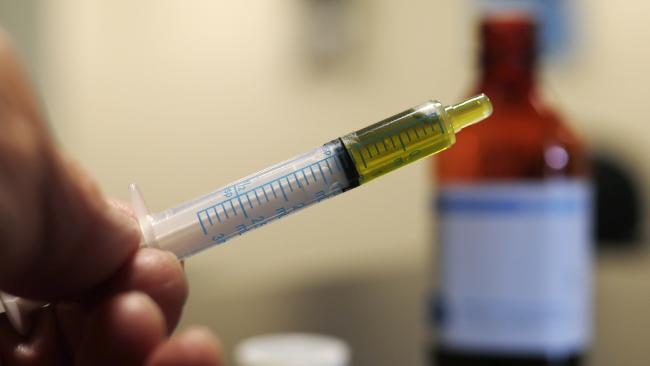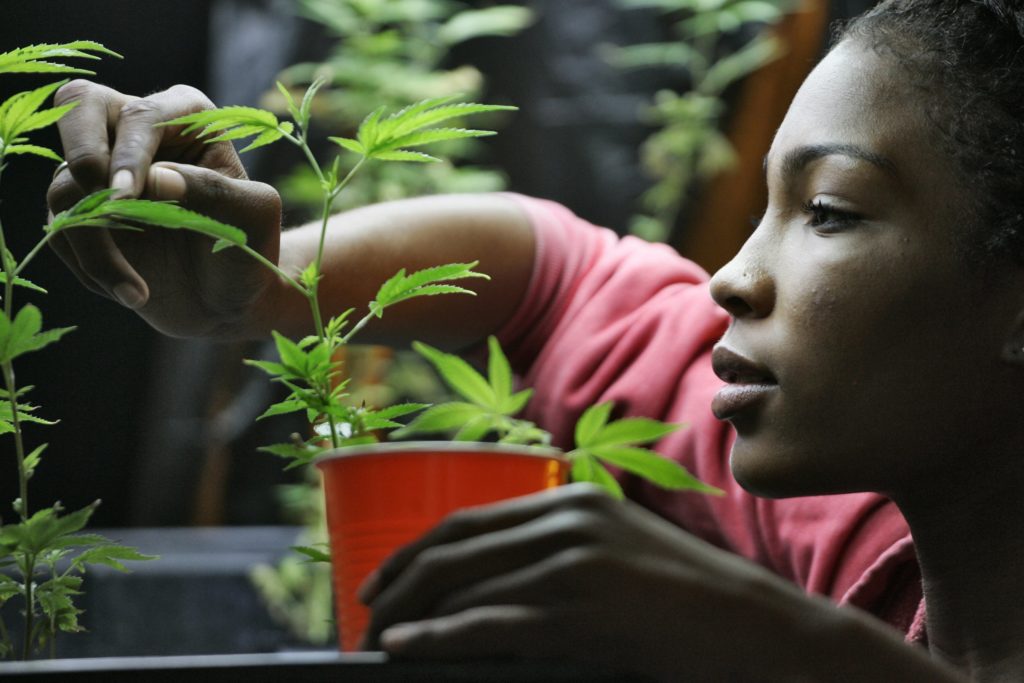AUSTRALIA proved it was open-minded when it came to saying yes to same-sex marriage.
The Yes vote has reason to celebrate, but if we truly are a progressive county like many of you proclaimed on social media, why are we not discussing other outdated practices like the fact weed is still illegal for recreational use in Australia in 2017?
Even though I don’t care for the institution of marriage as a whole, I still voted Yes because I believe, as adults, we should be given the freedom to make our own choices for things that really don’t have a negative impact on the lives of others. And I think weed is one choice.
‘WHAT ARE THE LAWS CURRENTLY IN AUSTRALIA?’
Our country is slowly taking steps to change its stance on weed, with Victoria becoming the first state to legalise marijuana for young children suffering from epilepsy, while NSW also allows use for patients suffering from serious illnesses such as cancer or multiple sclerosis.
Queensland’s laws are the most flexible in the country, which grant patients of any age or suffering from a range of illnesses access to medicinal cannabis products.
Tasmania allows medical cannabis in limited circumstances where conventional treatment has been unsuccessful, as does Western Australia, South Australia, the NT and the ACT.
While the use of medical marijuana is a step in the right direction, we also need to be talking about legalising it for recreational use, which would bring us on par with a number of countries across the world.
As of January 1, 2018, weed will be recreationally legal in a number of US states including Alaska, California, Colorado, Maine, Massachusetts, Nevada, Oregon and Washington DC.
This will bring America in line with Austria, Bangladesh, Belgium, Belize, Brazil, Cambodia, Colombia, Costa Rica, Croatia, Czech Republic, Denmark, Ecuador, Estonia, Greece, parts of India, Italy, Jamaica, Luzembourg, Malta, Mexico, Myanmar, Netherlands, Norway, Paraguay, Peru, Portugal, Russia, Solvenia, Spain, Switzerland, Ukraine and Uruguay — all of which have made recreational weed use legal or decriminalised.
‘WHAT ABOUT THE NEGATIVE HEALTH IMPACTS?’
Pot is still largely considered to have detrimental results on mental and physical health, but how much of this view is based on fact and how much is derived from weed-fearing propaganda from days gone by?
Earlier this year, the National Academies of Sciences, Engineering and Medicine completed the world’s most comprehensive study into marijuana to try and find an answer.
After examining more than 10,000 scientific abstracts dating back to 1999, the extensive 395-page report unearthed more than 100 conclusions about the health effects of recreational and therapeutic cannabis use — many of which support arguments it should be legal.
“The evidence suggests that smoking cannabis does not increase the risk for certain cancers (i.e., lung, head, and neck) in adults,” one of the findings read.
And while it did admit smoking cannabis on a regular basis is associated with chronic cough and phlegm production, it explained the drug orally will likely reduce these symptoms — legalisation of weed means you can buy eatables and not be forced to smoke.
The report also confirmed the many therapeutic effects of weed.
“In adults with chemotherapy-induced nausea and vomiting, oral cannabinoids are effective antiemetics,” the report read.
“In adults with chronic pain, patients who were treated with cannabis or cannabinoids are more likely to experience a clinically significant reduction in pain symptoms.
“In adults with multiple sclerosis (MS)-related spasticity, short-term use of oral cannabinoids improves patient reported spasticity symptoms.”
When looking at cannabis use and mental health, the findings offer mixed results.
“Cannabis use is likely to increase the risk of developing schizophrenia and other psychoses; the higher the use the greater the risk,” the report read.
However, it added that a history of cannabis individuals with schizophrenia and other psychoses may be “linked to better performance on learning and memory tasks”.
The research found smoking weed did not appear to increase the likelihood of developing depression, anxiety or PTSD, with heavy cannabis smokers even more likely to report thoughts of suicide than non-users.
‘IT CAN’T BE LEGAL, WEED MAKES YOU LAZY’
I can already hear the naysayers claiming marijuana is a dangerous drug that will ruin your life or turn you into a lazy stoner who spends their time watching movies and waiting on their couch for Uber Eats to be delivered.
While this is a likely a highly enjoyable way to spend your time, the stereotype is largely outdated and inaccurate for modern-day users of the drug.
I agree there might be people in society that do fit the aforementioned cliche, but you could argue those people likely lack drive regardless of whether they smoke pot or not.
Recent times have actually shown a huge surge in people smoking weed to help athletic performance as it deepens concentration, increases tissue oxygenation, and decreases muscle spasms before, during and after exercise.
Ultra-endurance athlete Avery Collins, who runs 240km per week, said training stoned helps him achieve flow quicker as the “runner’s high” acts upon the same receptors that receive the THC in marijuana.
“I use it as a way to intensify and enhance the run. It makes the longevity of the runner’s high last longer because technically you’re already high,” he told Motherboard.
With cannabis also long been accredited with anti-inflammatory properties, Mr Collins said he also smokes weed for the pain relief after gruelling training sessions.
“I’d be lying if I said [cannabis] doesn’t help soothe my muscles,” he added.
It’s not just runners who benefit either, with UFC commentator/stand-up comedian/podcaster Joe Rogan talking about its benefits for fighters.
“I think it (marijuana) is a performance-enhancing drug. If it wasn’t, a huge majority of jiu-jitsu guys wouldn’t be using it before they train,” he said on The MMA Hour. “They don’t do it because it hurts them; they do it because it helps them.”
He also claimed to have seen the benefits first-hand.
“I like to smoke pot and work out,” he said. “Getting high and working out is one of the least talked about and least appreciated pleasures of fitness.”










